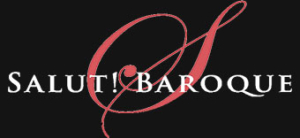Video of Anna Fraser provided courtesy of Sydney Conservatorium of Music, University of Sydney.
The Genius
Article by Sally Melhuish, 10.2.24
“…Bach united his great and lofty style with the most refined elegance and the greatest precision in the single parts that compose the great whole … . It was only through this union of the greatest genius with the most indefatigable study that Johann Sebastian Bach was able … to extend so greatly the bounds of his art that his successors have not even been able to maintain this enlarged domain to its full extent; and this alone enabled him to produce such numerous and perfect works, all of which are, and ever will remain, true ideals and imperishable models of art.” Johann Nicolaus Forkel, 1802
Johann Sebastian Bach is considered by many to be the greatest ever composer.
Although he rarely travelled beyond his own environs, Bach was inspired by music from a kaleidoscope of cultures across Europe to create some of the most profound and exacting compositions written in the history of Western Music. Carl Philipp Emanuel Bach mentioned his father’s lifelong “unheard-of zeal in studying”, and Bach’s curiosity in the ‘new’ was reflected in his extensive music library. Included in his impressive collection were a Palestrina Mass from 1590, as well as a diverse selection of music by 17th and 18th century German, French and Italian composers.
Bach’s compositional output was guided by his employment, patrons and available talent and resources. Much of Bach’s organ music was written during his appointment as court organist in Weimar (1708-1717), while his employment as Capellmeister in Cöthen (1717-1723) shifted his focus to instrumental music. Bach’s 27 years in Leipzig (1723-1750) produced most of his 300 remarkable cantatas (of which only 200 survive).
In what appears to us as a masterful appointment, Bach’s success for the position of Leipzig Thomas Cantor in 1723 was in fact a reluctant choice by the Leipzig town council. With Georg Telemann and Christoph Graupner both turning down the position after successful auditions, and Johann Fasch declaring that he would not be able to fulfill the teaching obligation as well as compose, the Council noted that “since the best man could not be obtained, a mediocre one will have to be accepted”.
Bach’s irascibility, his history of conflict and his refusal to meet all his obligations ensured that the Council’s relationship with their “incorrigible” Cantor did not improve. They continued to document Bach’s alleged transgressions, including that he showed “little inclination to work”. “Not only did the Cantor do nothing, but he was not even willing to give an explanation of that fact.” From Bach’s point of view, “The authorities are odd and little interested in music, so I must live amid almost continual vexation, envy and persecution.” (1730)
Mirroring Bach’s own complex personality, his music is powerful and dramatic, tender and poetic, radical and surprising. He composed with an exceptional single-mindedness and self-assurance as a ‘servant of God’ to create intellectually and emotionally brilliant works.
The Genius honours Bach’s exquisite music and places it beside composers who influenced his life and work, including musicians who deserve wider acknowledgement such as Buxtehude, Reincken, Graupner and Hurlebusch.
Performers: Anna Fraser (Soprano), Sally Melhuish, Alana Blackburn (Recorders), Sally Walker (Baroque Flute), Meg Cohen, Sarah Papadopoulos (Baroque Violin), John Ma, Baroque (Viola, Canberra concert), Suzie Kim, Baroque (Viola, Sydney concert), Tim Blomfield (Baroque Cello), Simon Martyn-Ellis (Theorbo), Monika Kornel (Harpsichord)
Program
Buxtehude – Cantata Herr, wenn ich nur dich habe BuxWV 38
Telemann – Ouverture-Suite in F minor, TWV 55:f1
Bach – Aria Aus Liebe will mein Heiland sterben
Bach – In This Shady Blest Retreat from Vauxhall Songs
Reincken – Sonata No. 1 in A minor Hortus Musicus
Caldara – Aria In lagrime stemprato il cor qui cade
Graupner – Ouverture-Suite in D major GWV 418
Monteverdi – Madrigal Lamento della Ninfa
Keiser – Ihr fliegenden Sänger from Opera Orpheus
Hurlebusch – Adagio from Concerto in A minor
Handel – Aria Occhi Belli, Voi Sol SieteI
Bach – Ouverture; Badinerie from Orchestral Suite No. 2 in B Minor
Salut! Baroque presents The Genius
Canberra: Friday 16 February, 7.30pm, Fairfax Theatre, National Gallery of Australia
Sydney: Sunday 18 February, 3.00pm, Verbrugghen Hall, Conservatorium of Music


